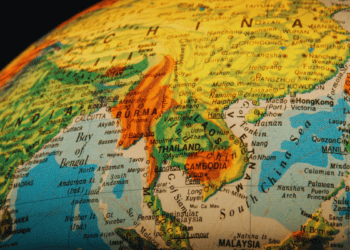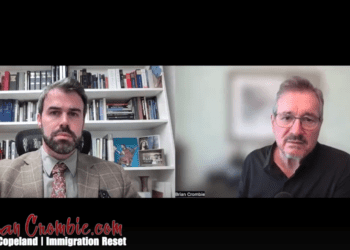Writing in the Globe and Mail, MLI’s managing director Brian Lee Crowley describes the problems with subsidising an automotive company. “Governments that want to attract major manufacturing investment must therefore expend money and effort, but they can do so wisely or foolishly”, writes Crowley.
BRIAN LEE CROWLEY, MARCH 7, 2014
Even if the request has been withdrawn for now, the recent controversy over Chrysler’s attempt to get a subsidy for its proposed investment in Ontario auto plants demonstrated once again that “levelling the playing field” is one of those phrases that trips easily off the tongue but obscures rather than clarifies the debate.
An analogy drawn from sport, most people use it to suggest that if the field is level, the teams’ chances are equal. Any sports fan, however, knows that is nonsense. The quality of the field is only one factor among several and many an unequal match has been contested on perfectly level fields.
To have an equal contest, in addition to the field, you’d have to equalize things like teams’ budgets, the quality of their players, coaching staff and management, and the support of the fans in the stadium.
The reason that is relevant to requests like Chrysler’s for government subsidies is that the potential investor always claims merely to want to level the playing field with other jurisdictions that might be willing to put money on the table.
You can see why CEOs like Chrysler’s Sergio Marchionne and others yet to show up with their hand out might want us to think in these terms; the implication is that all other factors affecting the investment are equal between different jurisdictions. If true, every competitor would feel obliged to match the highest offered subsidy, unleashing a bidding war that puts the investor in the driver’s seat.
Tellingly, investors themselves do not believe this is the case. The professional site selectors who advise companies on the desirability of various locations for their plants have a long and complex list of factors they weigh up in coming to their recommendations. While local subsidies make the top ten, they are well back compared with other much more important factors.
Some examples of considerations that weigh more heavily include the availability of well-educated qualified workers, the quality of infrastructure like road and rail connections, tax and regulatory burdens, and access to final markets.
In other words, a jurisdiction that scores high on these other factors might not need to pay any subsidy at all to be competitive with less well-run jurisdictions that have to make up for their shortcomings with cash. For that reason, subsidies are often merely a gift given to companies that invest for other reasons entirely.
Governments that want to attract major manufacturing investment must therefore expend money and effort, but they can do so wisely or foolishly.
One of the key ways to distinguish between the two is to ask what value remains for local workers, taxpayers and communities if the sought-after investment doesn’t succeed and closes its doors. A subsidy paid directly to the company leaves behind no traces if the plant closes. On the other hand, well-trained, productive and willing workers, competitive taxes and quality infrastructure benefit every business and are eagerly sought out by most business investors.
So if your schools are only middling, your electricity overpriced, your labour laws outdated, your fiscal situation deteriorating and your border with American markets congested and poorly managed, every business suffers and investors will likely want cash to help overcome these disadvantages. I leave it to you to decide if that describes Ontario.
Unfortunately, the big cash payment to the multinational leaves that much less to fix the burdens under which all the other local companies labour, and so contributes to a downward spiral from which it is ever harder to escape.
For those who argue that the competition for business investment triggers a race to the tax-cutting bottom it is worth observing that in the locational calculus of companies, the issue is not low taxes, but value for taxes. Companies can and do locate in high tax jurisdiction where the quality of public services is commensurate with the taxes. They can go to low tax jurisdictions understanding that the tax savings will have to be spent making up for absent public services. What companies flee is high tax locations with poor quality services.
I won’t claim that in the real world, subsidies must never be paid, but they always subtract from rather than add to the value of new investment. Moreover, they are hardly needed in well-run jurisdictions that focus their energy on education, infrastructure, competitiveness and market access. If we worried less about perfectly level fields and more about fielding the very best team, we’d be attractive to new investors without having to give them special deals at the expense of other taxpayers. Play ball.
Brian Lee Crowley (twitter.com/brianleecrowley) is the managing director of the Macdonald-Laurier Institute, an independent non-partisan public policy think tank in Ottawa.




